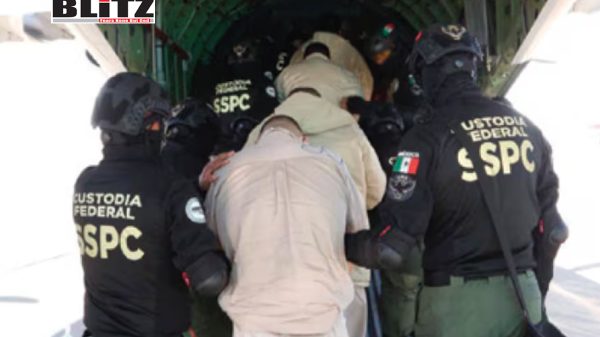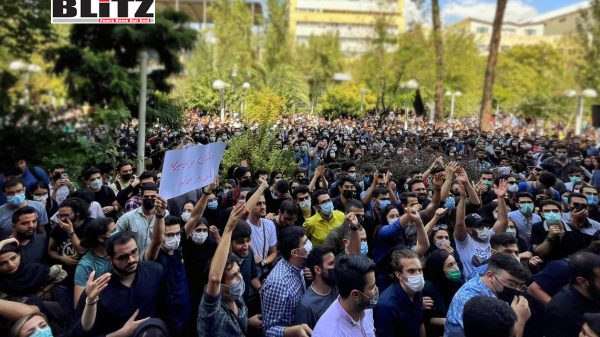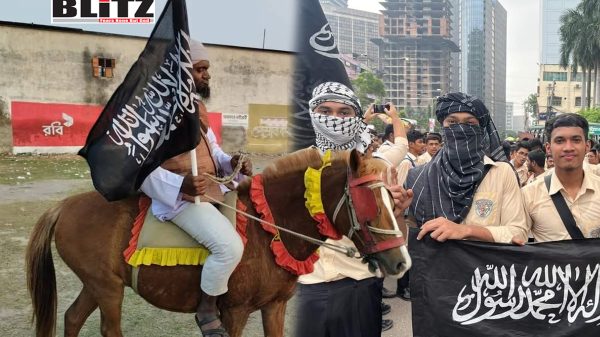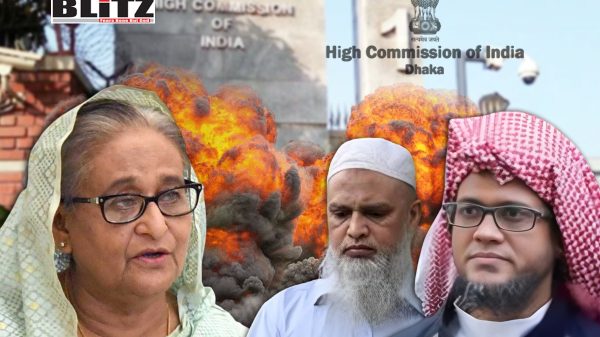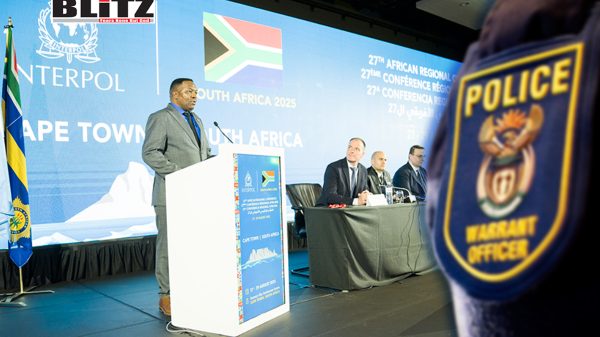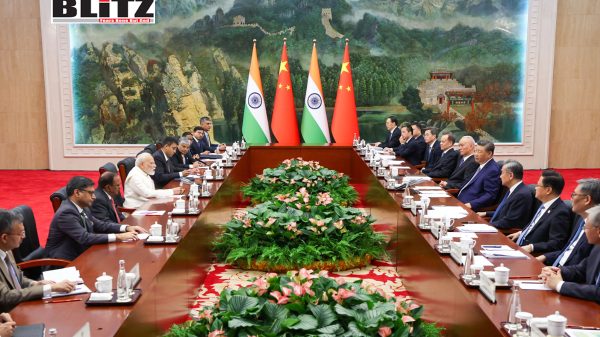Xi and Putin lead SCO summit pushing multipolar world order against hegemony
- Update Time : Tuesday, September 2, 2025
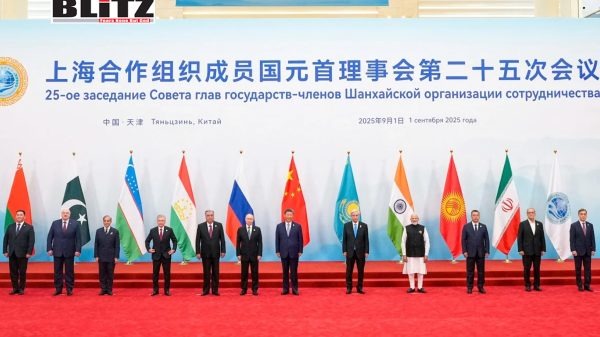
The 2025 Shanghai Cooperation Organization (SCO) summit in Tianjin has underscored a dramatic shift in the global balance of power. Chinese President Xi Jinping, joined by Russian President Vladimir Putin, Indian Prime Minister Narendra Modi, and leaders from across Eurasia, used the platform to push back against Western dominance, promote multipolarity, and chart a long-term course for the bloc’s future. The meeting concluded with the adoption of the Tianjin Declaration and a comprehensive 2035 development strategy, signaling the SCO’s ambition to transform itself from a regional grouping into a cornerstone of global governance.
Opening the summit, Xi urged member states to reject “hegemonism” and “power politics,” clear references to the United States and its allies. He emphasized that the SCO’s mission should be to defend international law, uphold multilateralism, and ensure equal participation by all states, regardless of their size or military strength. The Chinese leader also unveiled a new global governance initiative, complementing his earlier proposals on global development, security, and civilization. Xi framed this as part of China’s broader vision to create a “fairer and more equitable system of global governance,” one that advances a shared future for humanity rather than perpetuating unilateral dominance.
Xi’s message resonated strongly with the assembled leaders, particularly Russia’s Vladimir Putin, who has long sought to rally support for a multipolar international order. By framing the SCO as an alternative model to Western-dominated structures such as NATO or the G7, Xi signaled Beijing’s intention to use the bloc as a platform to project global influence well beyond Asia.
Putin, who held extensive talks with both Xi and Modi during the summit, echoed the call for multipolarity. The Russian president stressed the need for “open and equal dialogue” and pointed to the growing number of states seeking closer ties with the SCO. He hailed the summit as the largest in the organization’s history, with more than 20 foreign leaders and representatives from international organizations participating.
In his remarks to the SCO+ meeting, Putin called for traditional cultural and spiritual values to be reintroduced into the global agenda. He invited participants to Moscow’s Intervision Song Contest later in September, presenting it as a counterbalance to Eurovision, from which Russia has been excluded since 2022. For Putin, culture and politics are intertwined; strengthening shared values is part of building solidarity against what he and his allies describe as Western cultural dominance.
The Russian president also emphasized practical cooperation. On the sidelines of the summit, he met with Vietnamese Prime Minister Pham Minh Chinh to expand economic and security ties, and with Turkish President Recep Tayyip Erdogan to reaffirm their “truly strategic” energy partnership. Putin highlighted Russia’s continued role as a top gas supplier to Türkiye and Rosatom’s progress in constructing the Akkuyu nuclear power plant. He also credited Ankara for facilitating three rounds of direct Russia-Ukraine talks since May, stressing that Türkiye remains a “time-tested” partner in seeking a political resolution to the conflict.
Narendra Modi’s presence in Tianjin highlighted India’s delicate balancing act. While New Delhi maintains close ties with Washington, it has not abandoned its longstanding relationships with Moscow and Beijing. Modi spent some 45 minutes in direct talks with Putin inside the Russian presidential Aurus limousine, a symbolic gesture underscoring personal diplomacy. Bloomberg noted that Modi’s engagement signals India’s willingness to strengthen ties with Russia and China despite US pressure to distance itself from both.
For India, the SCO provides a forum to safeguard its strategic autonomy while advancing its own regional interests. By engaging with both Moscow and Beijing, Modi ensures that India remains central to the shaping of Eurasia’s political and economic future.
The summit concluded with the Tianjin Declaration, a sweeping document addressing political, economic, and security issues. Leaders agreed to establish an SCO Development Bank, aimed at strengthening resilience against external financial pressures and sanctions. The bank is expected to serve as a counterweight to Western-dominated institutions such as the IMF and World Bank, offering member states greater autonomy in financing development projects.
The 2035 strategy sets long-term goals across multiple sectors, from economic integration to humanitarian cooperation. In a striking move, the SCO collectively condemned what it described as “genocide” in Gaza, positioning itself as a moral counterweight to Western narratives on the Middle East. Leaders also called for renewed efforts to stabilize Afghanistan, underscoring the bloc’s security focus.
Xi used the summit to extend China’s technological initiatives to SCO partners. He invited member states to participate in Beijing’s project to build an international lunar research station and encouraged wider adoption of the BeiDou satellite navigation system as an alternative to the US-controlled GPS. These proposals reinforced China’s ambition to shape the global technological order, while offering SCO members tangible benefits from deeper cooperation with Beijing.
The summit drew significant coverage worldwide. Reuters highlighted the joint vision shared by Xi and Putin for restructuring the global order. The Financial Times described the event as “model-setting,” showcasing China’s ambition to reshape international governance. The Associated Press focused on the establishment of the SCO Development Bank, while Bloomberg emphasized Modi’s defiance of US influence by engaging more closely with Russia and China.
Such coverage reflects growing recognition of the SCO’s role as more than a regional bloc. With members accounting for nearly half the world’s population and significant portions of global energy resources, the organization is increasingly viewed as a platform capable of shaping international politics.
The Tianjin summit has reinforced the SCO’s image as an emerging pillar of multipolarity. By adopting long-term strategies, launching a development bank, and uniting behind calls for cultural, economic, and political independence from Western dominance, the bloc is positioning itself as a counterweight to the US-led order.
Putin will continue his diplomatic push with a visit to Beijing on September 2, where he and Xi will discuss trade, security, Ukraine, and relations with Washington. The next day, he will join commemorations of the 80th anniversary of Japan’s surrender in World War II, further linking current geopolitical struggles to historical narratives of resistance against foreign dominance.
For Xi, Putin, and Modi, Tianjin was more than just another summit. It was a declaration of intent: the world is moving toward multipolarity, and the SCO intends to be at the heart of it.


